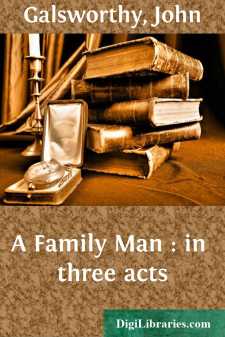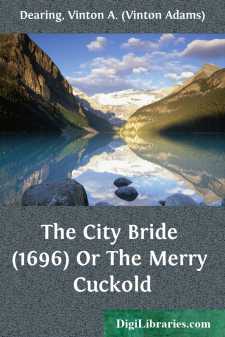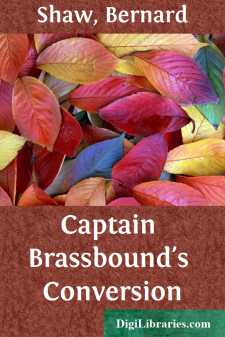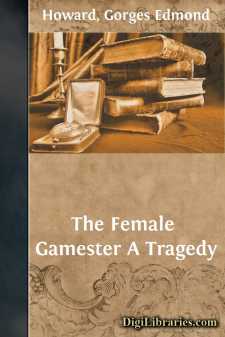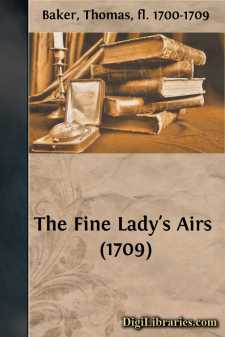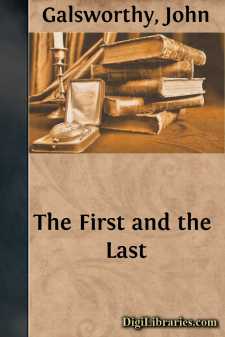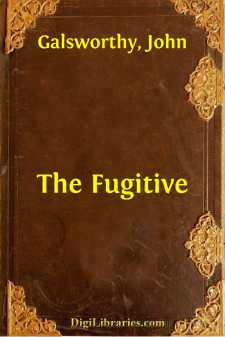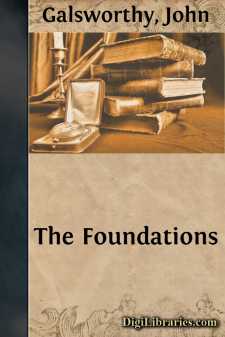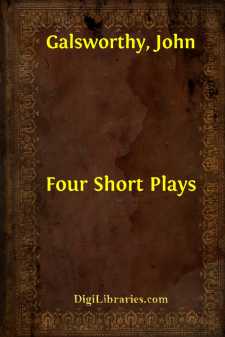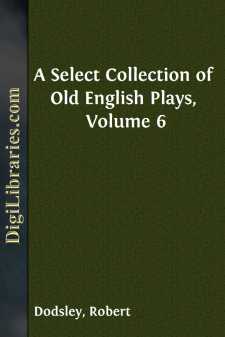Drama
- American 43
- Ancient, Classical & Medieval 45
- Asian 7
- Caribbean & Latin American 2
- Continental European 50
- English, Irish, Scottish, Welsh
- General 105
- Middle Eastern 1
- Religious & Liturgical 1
- Shakespeare 1
English, Irish, Scottish, Welsh Books
Sort by:
by:
John Galsworthy
ACT I SCENE I The study of JOHN BUILDER in the provincial town of Breconridge.A panelled room wherein nothing is ever studied, except perhapsBUILDER'S face in the mirror over the fireplace. It is, however,comfortable, and has large leather chairs and a writing table in thecentre, on which is a typewriter, and many papers. At the back is alarge window with French outside shutters, overlooking the...
more...
INTRODUCTION The City Bride, by Joseph Harris, is of special interest as the only adaptation from the canon of John Webster to have come upon the stage in the Restoration. Nahum Tate’s Injur’d Love: or, The Cruel Husband is an adaptation of The White Devil, but it was never acted and was not printed until 1707. The City Bride is taken from A Cure for a Cuckold, in which William Rowley and perhaps...
more...
by:
Bernard Shaw
ACT I On the heights overlooking the harbor of Mogador, a seaport on the west coast of Morocco, the missionary, in the coolness of the late afternoon, is following the precept of Voltaire by cultivating his garden. He is an elderly Scotchman, spiritually a little weatherbeaten, as having to navigate his creed in strange waters crowded with other craft but still a convinced son of the Free Church and...
more...
ACT I. SCENE I. Mr. ANDREWS's house. Enter MARIA and THOMAS. MARIA. But why these moping, melancholy looks?Each eye observes and marks them now unseemly,Whilst every countenance but your's speaks joy,At the near wedding of our master's daughter.Sure none so well deserv'd this noble prize:And young lord Weston will be bless'd indeed. THOMAS. It has been countermanded. MARIA....
more...
by:
Thomas Baker
INTRODUCTION In the first decade of the eighteenth century, with comedy in train to be altered out of recognition to please the reformers and the ladies, one of the two talented writers who attempted to keep the comic muse alive in something like her "Restoration" form was Thomas Baker.[1] Of Baker's four plays which reached the stage, none has been reprinted since the eighteenth century...
more...
by:
John Galsworthy
SCENE I It is six o'clock of a November evening, in KEITH DARRANT'S study. A large, dark-curtained room where the light from a single reading-lamp falling on Turkey carpet, on books beside a large armchair, on the deep blue-and-gold coffee service, makes a sort of oasis before a log fire. In red Turkish slippers and an old brown velvet coat, KEITH DARRANT sits asleep. He has a dark,...
more...
by:
John Galsworthy
ACT I The SCENE is the pretty drawing-room of a flat. There are twodoors, one open into the hall, the other shut and curtained.Through a large bay window, the curtains of which are not yetdrawn, the towers of Westminster can be seen darkening in asummer sunset; a grand piano stands across one corner. Theman-servant PAYNTER, clean-shaven and discreet, is arranging twotables for Bridge. BURNEY, the maid,...
more...
by:
John Galsworthy
ACT I LORD WILLIAM DROMONDY'S mansion in Park Lane. Eight o'clock of the evening. LITTLE ANNE DROMONDY and the large footman, JAMES, gaunt and grin, discovered in the wine cellar, by light of gas. JAMES, in plush breeches, is selecting wine. L. ANNE: James, are you really James? JAMES. No, my proper name's John. L. ANNE. Oh! [A pause] And is Charles's an improper name too? JAMES....
more...
by:
John Galsworthy
HALL-MARKED The scene is the sitting-room and verandah of HER bungalow. The room is pleasant, and along the back, where the verandahruns, it seems all window, both French and casement. There is adoor right and a door left. The day is bright; the timemorning. [HERSELF, dripping wet, comes running along the verandah,through the French window, with a wet Scotch terrier in herarms. She vanishes through the...
more...
by:
Robert Dodsley
Four of the five ensuing Plays belong to a peculiar class of our early dramatic performances never yet especially noticed, nor sufficiently illustrated. Many specimens have of late years been printed, and reprinted, of Miracle-plays, of Moral-plays, and of productions written in the most matured period of our dramatic literature; but little or nothing has been done to afford information respecting a...
more...


